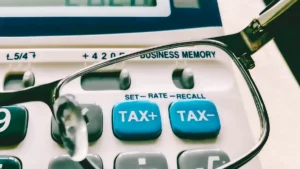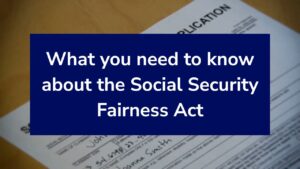Owing taxes to the IRS can be stressful, especially if you don’t have the money to pay them. However, ignoring the problem will only make it worse. The IRS offers several options for taxpayers who cannot pay their tax bill in full. Understanding these options can help you avoid penalties, interest, and legal consequences. In this guide, we will explore what you can do if you owe taxes and can’t pay, along with practical solutions to handle the situation responsibly.
Assess Your Tax Situation
The first step is to determine exactly how much you owe. You can check your tax balance by logging into your IRS account at IRS.gov or reviewing your latest tax return. Understanding your total liability, including penalties and interest, will help you decide the best course of action.
File Your Tax Return on Time
Even if you can’t pay your tax bill in full, you should still file your tax return by the deadline. Failing to file will result in a Failure-to-File Penalty, which is much higher than the Failure-to-Pay Penalty. The late filing penalty is typically 5% of your unpaid taxes for each month your return is late, up to a maximum of 25%. In contrast, the failure-to-pay penalty is only 0.5% per month.
By filing on time, you can minimize additional penalties and demonstrate good faith to the IRS, which may make it easier to negotiate a payment plan later.
Understand Your Payment Options
The IRS provides several payment options for taxpayers who can’t pay their tax debt in full. Here are some of the most common options:
- Short-Term Payment Plan: If you owe less than $100,000 in taxes, penalties, and interest, you may qualify for a short-term payment plan. This plan allows you to pay your balance within 180 days without needing a formal installment agreement.
- Installment Agreement: If you owe less than $50,000 and need more time to pay, you can apply for a long-term installment agreement. This allows you to make monthly payments over several years.
- Offer in Compromise (OIC): If you can prove that paying your full tax debt would create financial hardship, the IRS may agree to settle your debt for less than what you owe. The OIC process requires submitting financial documentation and can take months to process.
- Currently Not Collectible (CNC) Status: If you cannot afford to make any payments, you can request to be placed in a Currently Not Collectible status. This temporarily stops IRS collection efforts, though interest and penalties may continue to accrue.

Consider Alternative Payment Methods
If you don’t qualify for an IRS payment plan, consider other options to cover your tax debt:
- Personal Loan: A personal loan from a bank or credit union may have a lower interest rate than IRS penalties and interest.
- Credit Card Payment: While not ideal, paying taxes with a credit card could be an option if you have a low-interest rate or a 0% introductory APR offer.
- Home Equity Loan: If you own a home, a home equity loan might offer a lower interest rate than IRS penalties.
- Borrowing from Retirement Accounts: Withdrawing from a 401(k) or IRA can be risky due to penalties and taxes, but it could be a last resort.
Request a Penalty Abatement
If you have a history of filing and paying your taxes on time, you may qualify for a First-Time Penalty Abatement. The IRS may waive penalties if you have a good compliance record for the past three years and have filed all required tax returns.
Avoid Future Tax Problems
To prevent owing taxes in the future, consider these proactive steps:
- Adjust Your Withholding: If you are an employee, review your W-4 form and adjust your tax withholding to ensure enough taxes are deducted from your paycheck.
- Make Estimated Tax Payments: If you are self-employed or have additional income, make quarterly estimated tax payments to avoid underpayment penalties.
- Create a Tax Savings Fund: Set aside money throughout the year to cover your tax bill, just as you would for other expenses.
- Consult a Tax Professional: If you frequently owe taxes, a tax professional can help you plan and find deductions or credits you might be missing.
Final Thoughts
Owing taxes can feel overwhelming, but there are solutions available. The key is to act quickly, communicate with the IRS, and explore payment options that work for you. Whether you set up a payment plan, apply for relief programs, or seek professional assistance, taking proactive steps can help you avoid further penalties and financial hardship. If you find yourself struggling with tax debt, consider consulting a tax professional to help you navigate the process and find the best resolution for your situation.





